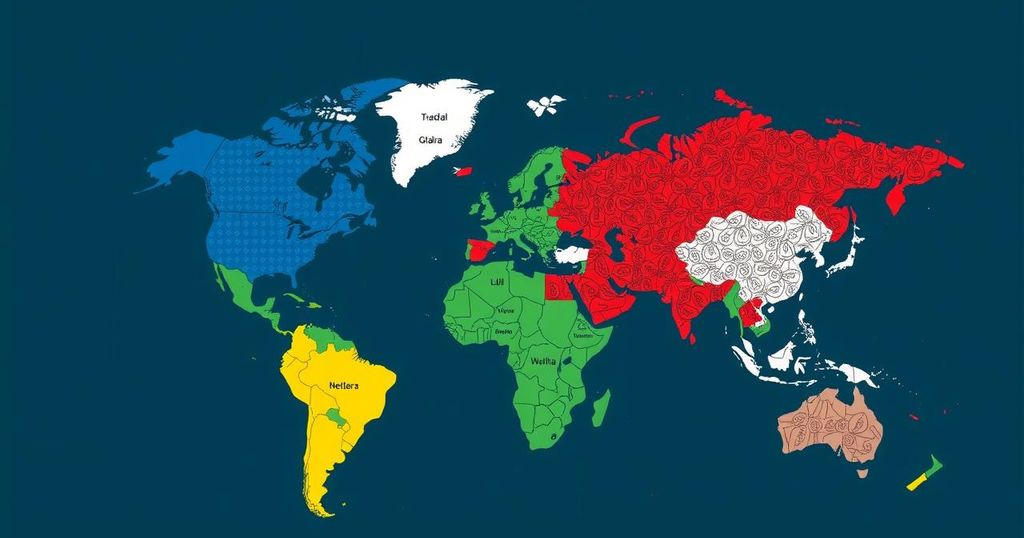Leaders from Commonwealth nations are meeting in Samoa to discuss urgent issues, including the impacts of climate change and calls for reparations related to the transatlantic slave trade. The summit addresses the existential threat posed by rising sea levels, particularly for low-lying island nations, while simultaneously engaging in dialogues about the moral obligations of historical reparations. The outcomes may influence significant policy shifts within the Commonwealth and foster collaboration among member nations.
The Commonwealth Heads of Government Meeting, currently underway in Samoa, highlights critical issues such as climate change and the call for reparations related to Britain’s involvement in the transatlantic slave trade. This significant gathering includes leaders and officials from 56 nations with historic connections to the British Empire, alongside King Charles III as a notable attendee. Particularly concerning for many Commonwealth nations, especially low-lying island states vulnerable to climate shift, is the issue of rising sea levels. United Nations Secretary-General Antonio Guterres has remarked that ocean temperatures in the Pacific Islands are increasing at three times the global average, placing the population at heightened risk. As articulated by Australian Foreign Minister Penny Wong, “Climate change is an existential threat. It is the number one national security threat. It is the number one economic threat to the peoples of the Pacific and to many members of the Commonwealth.” Alongside climate initiatives, the summit also addresses long-standing discussions regarding reparations for historical injustices, particularly among Caribbean and African nations. While British Prime Minister Kier Starmer expressed the UK’s reluctance to prioritize reparations in the context of the summit, he remains open to dialogue with leaders who wish to engage on the topic. Moreover, the Caribbean Community (CARICOM) has established a commission to pursue reparations from former colonial entities. Those advocating for reparations underscore the lasting impacts of slavery on contemporary racial disparities, contrasting with voices asserting that current generations should not be penalized for historical wrongs. The discussions at this summit not only aim to outline actionable solutions for climate change but also seek to address the moral imperative of reparative justice for the atrocities committed during the slave trade. The lives of millions of Africans were irrevocably altered from the 15th to the 19th century, with over 12.5 million forcibly transported as slaves, their labor underpinning economies in the Americas. It is anticipated that island leaders will issue a declaration focused on ocean protection, emphasizing the need for collective action against the existential threats posed by climate change, while also recognizing the importance of reparations as part of the historical reckoning that the Commonwealth must confront.
The Commonwealth of Nations, a political association of 56 member states, most of which are former territories of the British Empire, is currently convening in Samoa. The discussions at the Commonwealth Heads of Government Meeting (CHOGM) address two pressing global issues: climate change, particularly its devastating effects on vulnerable island nations, and the calls for reparations stemming from the historical injustices of slavery. As the impacts of climate change grow more severe, particularly for small states facing rising sea levels, the need for international dialogue and cooperation has become increasingly urgent. Additionally, the question of reparations for the transatlantic slave trade remains a contentious topic, as nations debate the responsibility of colonial powers to address the legacy of slavery that has left lasting racial and economic disparities.
In conclusion, the Commonwealth Heads of Government Meeting in Samoa serves as a significant platform for discussing critical global issues such as climate change and reparations for the historical injustices of slavery. With an emphasis on the urgent need for climate action among vulnerable nations and ongoing dialogues regarding reparative justice, this summit holds potential for fostering collaborative responses to these pressing challenges. The inclusion of diverse voices and perspectives is paramount to addressing these profound issues, and the discussions that unfold may shape the frameworks for future cooperation within the Commonwealth.
Original Source: www.voanews.com







